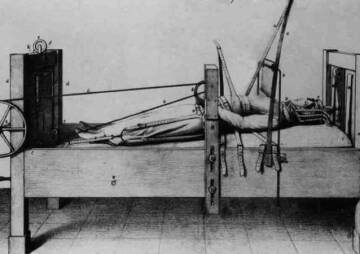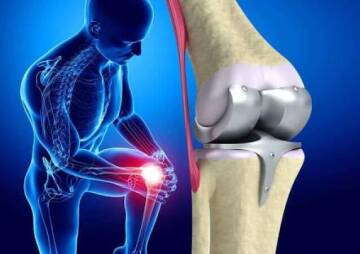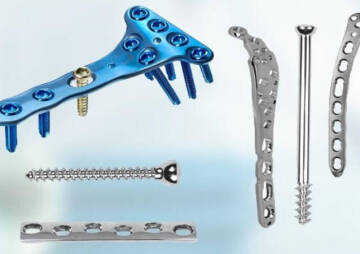-
Category
Craniomaxillofacial Surgery
Orthopedic Surgery
Spine Surgery
Orthopedic Implants
Hip Surgery
Knee Surgery
Pectus Excavatum
Bone Graft
Disinfectants
Healthcare
Is orthopedic surgery in coronavirus condition postponed?

During the coronavirus pandemic, surgery is categorized into elective and emergency surgery.
The COVID-19 disease is surging all around the world, affecting the majority of countries and also affecting their healthcare systems. Over 2000,000 infected cases and 160,000 deaths have been reported recently. This rapid pandemic could most overwhelm the capacity of health care and reduce the resources which are a serious concern. Hospitals have become main centers for the treatment of COVID-19 patients. As Covid-19 cases are rising rapidly, hospitals have postponed not only elective surgeries like orthopedic surgery, hernia repairs and cosmetic procedures, but even important treatments like cancer surgery.
This article aims to answer the following questions,
What happens to orthopedic surgery in coronavirus condition?
What to do if your orthopedic surgery is suspended?
Types of affected surgery in COVID-19 crisis
During the coronavirus pandemic, surgery is categorized into elective and emergency surgery.
Elective surgery
An elective surgery does not necessarily mean it is optional. It means that the surgery can be scheduled in advance and it does not require urgent treatments. Elective surgery is usually for a better quality of life and it is not for a life-threatening condition, such as implant replacement, some cosmetic surgery, and orthopedic surgery, but in some cases it might be for a serious condition such as cancer. Some examples of elective surgery include inguinal hernia surgery, cataract surgery and surgery for kidney stone.
Urgent or emergency surgery
When there is an urgent medical condition or the condition is life threatening, urgent or emergency surgery must be done. Some examples of urgent surgery are appendicitis, acute trauma and acute airway obstruction.
Elective surgery is being postponed during COVID-19 pandemic
As the coronavirus is continuously spreading around the world, health services get under pressure to provide care to the patients of COVID-19. To this end, most of the hospitals have postponed their elective and non-urgent surgeries. It's to help make the best use of medical resources and preserve them, reduce the risk of coronavirus spread, and help the health system prepare for the massive influx of COVID-19 patients. Coronavirus condition has made an unforeseen national emergency and elective surgeries are postponed until the crisis is under control.
What to do if your orthopedic surgery is suspended?
Many orthopedic procedures are put off in coronavirus condition, because most of the orthopedic procedures fall into the category of elective surgery.
Here are some nonsurgical treatments for those postponed orthopedic surgery in coronavirus condition.
Arthritis
You might have an extreme joint pain or stiffness which makes you to be on the list of surgery for joint replacement on your hip, shoulder, knee or ankle.
Here are some nonsurgical treatments which might be useful until your rescheduled surgery:
You should change your activities in order to avoid doing things that cause painful symptoms.
You can control your joint pain and swelling by using nonsteroidal anti-inflammatory drugs (NSAIDs).
Putting ice or heat to the painful joint can relieve the pain, using either ice or heat depends on which is more comfortable for you.
In some cases, an injection of a corticosteroid into the joint can help ease pain until your surgery is rescheduled.
If you have arthritis in your knee or hip, by limiting walking and avoiding stairs you can relieve the pain but if you are suffering from arthritis in your shoulder, try to avoid heavy lifting. Additionally do not underestimate the importance of exercise.
Sports Injuries
Sports injuries can occur either during exercise or while you are participating in a sport. Different sports injuries require different treatments or even surgery. Physical therapy or exercise in some sport injuries which include a labral tear in shoulder or an anterior cruciate ligament tear in knee, can help to preserve strength and range of motion in the affected joint.
If you feel sharp pain in your knee and you feel it is unstable, it is better to avoid activities that involve jumping, pivoting or sudden changing direction, because these activities might cause your knee to give out and you may fall. If you have torn your meniscus in your knee and you need to have arthroscopic surgery, it is necessary to use knee support or knee brace and anti-inflammatory medication until your surgery is rescheduled.
Spine Problems
The most important nonsurgical treatment for spine problems is resting and avoiding activities that make you feel more pain. In addition there are some drugs that help your symptoms get lessen. Muscle relaxants, Nonsteroidal anti-inflammatory drugs and pain medication are often on the list of drugs that can help.
Carpal Tunnel Syndrome
Carpal tunnel syndrome is usually a painful condition with the symptoms of numbness, pain and tingling in the hand and arm. If you need surgery but it is postponed, you may get relief from your pain by wearing a wrist splint at night and from taking anti-inflammatory medication.
Emergency orthopedic surgery in coronavirus condition
There are some conditions that require immediate orthopedic surgery or surgery within a few days.
Emergency orthopedic surgery includes:
- Fractures (broken bone) in which the pieces of bone are out of place and it requires closing or alignment, surgery, splinting, or casting.
- Concussions
- Tendon ruptures
- Dislocations
- Open wounds Infections
- Bone tumors
- Disk herniation
The orthopedic surgeon can perfectly advise the best timing of any emergency surgery.
If you have any questions or problems about your orthopedic procedure in the coronavirus condition, it is necessary to keep communication with your surgeon. Simply by a telephone call you can ask your question or talk about your routine orthopedic problem. Video teleconference is another option which these days help patients to communicate face-to-face with their surgeon.







Four weeks ago I had an anterior hip replacement performed by surgeon, Dr. I no longer need a walker or a cane. For me, an anterior hip replacement meant faster recovery without as many precautions and fewer pain meds. I have only used over-the-counter pain medicine since I was discharged from the hospital. I am now cleared to "do anything I want to do." I am looking forward to long, pain free walks which I have not been able to do for some time. Anterior hip replacement might not be the answer for everyone, but it well worth looking into.
It is very good that you solve your problem with surgery during the corona pandemic.